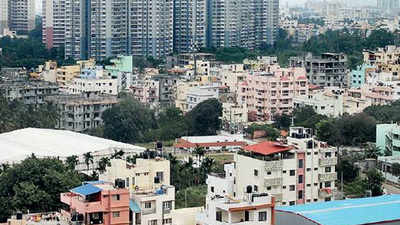The Times of India 28.12.2017
BMC can’t collect advertisement tax for hoardings on rly land: HC
TNN | Updated: Dec 25, 2017, 04:02 IST

MUMBAI: The Bombay high court has directed the Indian Railways to
formulate a policy for putting up hoardings on its properties that takes
into consideration the safety of the public.
A division bench of Justice Bhushan Gavai and Justice Sandeep Shinde passed the orders while thwarting a bid by the BMC to collect “advertisement tax” for the hoardings that are put up on railway land but face public roads.
There are 225 such hoardings on lands owned by Central Railways and 240 on lands owned by Western Railways
that reportedly earn over Rs 60 crore revenue annually. The court held
that BMC permission was not needed for the hoardings on railway land and
neither could the corporation collect a “fee” from the hoarding owners.
The bench, however, expressed concern over the haphazard manner in
which hoardings are put up.
“We are of the considered view that erection of hoardings in haphazard
manner thereby endangering the safety of citizens would not be in the
larger public interest,” said the division bench. It gave the railways
six months to come up with a policy “for regulating the hoardings on the
railway properties, after taking into consideration various statutory
provisions, so as to ensure that the hoardings are not erected in
haphazard manner, that there is no overcrowding of the hoardings and
that the safety of citizens is not endangered.” The judges said they
would appreciate it if the railways involved the BMC while framing a
policy for the city.
Latest Comment
BMC are real beggars
the municipal corporation to formulate policy guidelines for grant of
permission for display of sky-signs and advertisements. Between 2008 and
2010, various directions were passed by the high court on the issue. In
2014, the commissioner asked the railways not to put up hoardings on
railway properties which are visible from a public road without first
obtaining permission. The BMC’s demand for a fee for such hoardings was
challenged by the railways as well as hoarding owners.
Additional solicitor general Anil Singh, counsel for the railways, cited the provisions of the Railway Act. Singh
said that the power to construct on its land, including putting up of
structures for displaying hoarding, was exclusively with the Railways.
The advocate further contended that the Railways was not liable to pay
any tax on such advertisements unless the Centre issues a notification.
“Charges which are sought to be recovered by the corporation are nothing
but compulsory exaction of money without rendering any services,” said
Singh.

